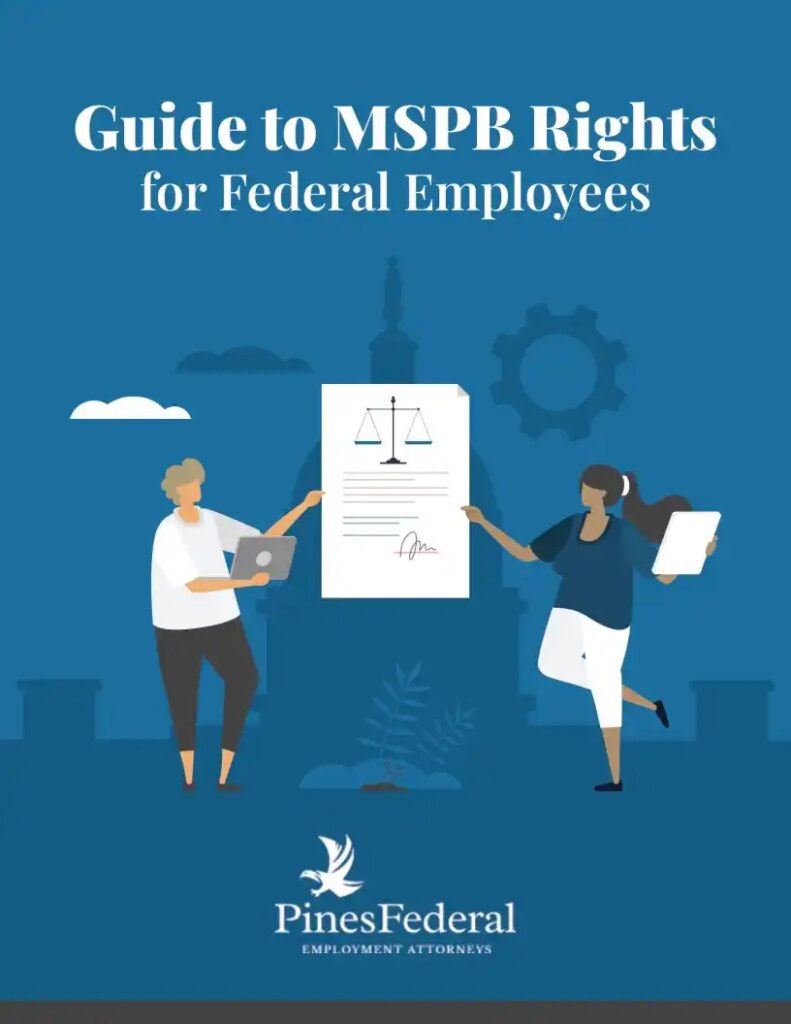
Like the vast majority of employees across the country, federal workers are protected from discrimination based on disability or other severe medical conditions.
However, that raises an important question: What happens when a medical condition interferes with your ability to do your job?
This blog post will shed light on this and other questions about federal employees’ removals due to medical inability. We’ll discuss what’s required to prove someone’s medical inability to perform their job and the rights federal employees have during the process.
Learn how our experienced federal Merit Systems Protection Board (MSPB) attorneys can assist you by calling (800) 801-0598 or filling out our online form today.
Is It Legal for Me to Be Removed from My Job for Medical Reasons?
Generally, the answer is yes.
Under Title 5 of the U.S. Code, an agency may remove a FERS or CSRS civil service employee if doing so will promote the efficiency of the agency’s service. This gives agencies the power to remove an employee if they cannot perform the duties of the position because of a medical condition.
However, to sustain the removal at the MSPB, the agency will need to make a pretty convincing proof of an employee’s inability to perform the job duties in question.
How Does an Agency Prove a Medical Inability Removal?
There are two ways an agency can carry out a medical inability removal. For one, they could argue that your medical condition prevents you from satisfactorily meeting your essential job duties.
This requires they prove to the MSPB that:
- You have a medical condition,
- Your job performance or conduct hasn’t been adequate, and
- Your inadequate performance is linked to your medical condition.
The agency could also try to sustain its charge by proving:
- You have a medical condition,
- The nature of your condition makes you ineligible for performing your job duties,
- Your condition could reappear or worsen, and
- There’s a risk of substantial harm to yourself or others if your condition recurred while performing your job duties.
An agency can initiate a medical removal because of a physical or mental health condition they claim leaves you unable to perform your job duties. However, doing so requires them to produce concrete, documented medical evidence of your condition and performance limitations.
[DOWNLOAD] MSPB Rights for Federal Employees

What Is the Difference Between Medical Inability to Perform and Unsatisfactory Performance?
A charge of medical inability to perform is similar to but not the same as a charge of unsatisfactory performance. Both charges allege that a federal employee has deficient job performance. However, the main distinction between them is the type of evidence they demand.
A charge of medical inability to perform requires medical evidence showing that the employee can’t fulfill certain job duties due to a health condition. Although non-medical evidence regarding performance deficiencies might corroborate medical evidence of incapacity, the non-medical evidence alone is insufficient to establish the charge of inability to perform job duties.
Additionally, if the evidence supports a finding that the federal employee has recovered by the time of the hearing regardless of whether or not the employee was unable to perform his duties at the time the agency took the action, the board will reverse the removal.
What Are My Rights in a Removal for Medical Inability?
Agencies seeking to remove someone for medical inability must follow certain guidelines and procedures. Let’s examine some of the rights federal agencies must respect during the removal process.
Advance Notice
Federal employees facing adverse employment actions like removal have a right to know before the agency takes action.
Employees should receive a written notice of the proposed action at least 30 days before the action.
This notice should make it clear that medical inability is the reason for the proposed removal and outline the evidence the agency used to make this decision.
Once you receive the notice of proposed action, you have 30 days to file your appeal with the MSPB. This advance notice also gives you valuable time to collect evidence to defend yourself, e.g., medical records, performance reports, etc.
Bruner Presumption
The Bruner Presumption is a policy that removes some obstacles for federal employees seeking disability benefits after losing a job due to medical inability.
When an employee applies for federal disability retirement after removal due to medical inability to perform, the Bruner Presumption puts the burden on the Office of Personnel Management (OPM) to show that the employee does not qualify.
Federal employees must still provide evidence and medical records to support their disability claim. The Bruner Presumption also doesn’t guarantee that their claim will be approved. However, shifting the burden of proof to the OPM still gives employees a helpful advantage.
Legal Representation
Federal employees facing potential medical removal also have the right to legal representation throughout the MSPB appeal process.
Put simply, this means you can seek guidance from an attorney almost immediately after you receive the notice of proposed removal. Your lawyer can help you prepare to file your appeal and gather medical records and evidence of performance.
During the MSPB hearing, your attorney can play a vital role in representing your interests and protecting your rights. They can help ensure consideration of valuable evidence, question witnesses, and make a strong legal argument supporting your claim before the administrative judge.
Have More Questions? Get in Touch!
No post on this website is legal advice, is meant to be legal advice, and certainly does not serve as a substitute for legal advice.
Information is power, and we are providing this information to give you, the federal employee, with some power. This information is not widely or easily accessible to federal employees.
It is best to consult with a lawyer familiar with MSPB appeals to discuss the facts and law of your particular case.
If you have questions about an adverse action, an MSPB Appeal, or the MSPB in general, please contact an MSPB attorney at Pines Federal to schedule a consultation today.
Call (800) 801-0598 or reach us online to get started.